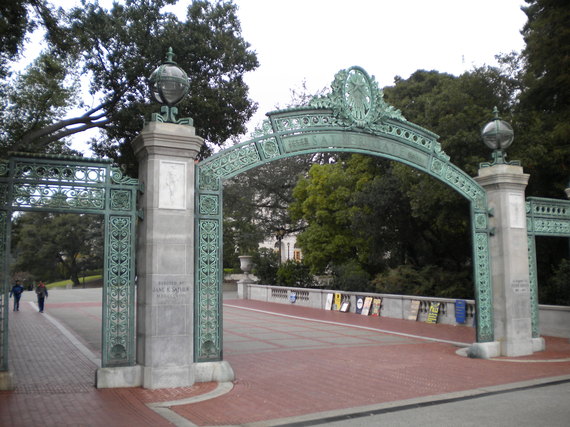Last weekend the Pacific Coast Theological Society (PCTS) celebrated its seventy-fifth anniversary in Berkeley. We read the first papers presented by its founding members. Each one had the title "What is Essential in the Christian Religion," followed by a subtitle that more precisely described that author's project.
Our overall impression in reading these papers was how much these writers seem to share in common. They speak the same language. They confidently appeal to the Christian religion as if every one knew what that was. They agree about what it means to be a Christian, what the pressing questions in theology are, and on what constitutes a convincing argument.
Today we just do not share many of these unspoken assumptions about how to read the Bible, our relation to other religions, or the meaning of the past. In fact, the seeming uniformity of perspective makes the papers seem dated to us.
The chief value for me in this exercise was to have a clearer picture of how much Christianity has changed over this time. Even those Christians today who are trying to maintain the exact same religious views as these earlier writers still face a radically altered society. The technological advances actually seem minor compared to social changes.
Needless to say seventy-five years ago few women gave papers at these conferences, taught in seminaries or studied to be leaders of Christian congregations. This was before the collapse of colonialism, before the Civil Rights movement really got underway. These papers were written before the holocaust. The Christian triumphalism and anti-Semitism of that time disturbs us. Their world seems so black and white. Too many of them write as if scholarship consists solely in proving the superiority of their own religion.
For me, the most embarrassing moments of the weekend occurred during a presentation by Richard Payne, the dean of the Institute for Buddhist Studies. He quoted a 1939 paper that used the metaphor of pollution and decay to describe how the, "ethical agnosticism of (Buddha) was transformed into the rank polytheistic, ritualistic religion... of Northern Buddhism."
Payne points out that in 1939 they did not really have categories for discussing how we could view other religions as valuable in themselves. He described three responses to religious differences. There is the old exclusivism that sees the highest truth only in one's own religion. He calls this, the "I'm okay, you're not okay" model. There is also a kind of inclusivism that says that there is much truth in other religions, but they are still not as good as our own. This is the "I'm okay, you're okay to a point, but I am the most okay" model. Finally, there is genuine pluralism which recognizes that in most respects different religions cannot even be compared. Payne calls this the "We're all okay" model.
How we treat religious differences seems connected to our relationships with other people. Is what you value in your friends, lovers, children and spouse the way in which they are the same as you or how they differ? At a certain point most people realize that they have not married themselves. We know what this means, just as we have seen relationships in which a husband has tried to force his identity onto his wife. Having a healthy relationship requires us to accept the other person as more than we can understand. To live happily with other people we need to respect the mystery of their inner life. This is true of our relation to other religions too.
This leads to the hardest part of the weekend for me to explain. People who are serious about the study religion know this so well that it is difficult to articulate. Simply stated, over the last seventy-five years we have a new appreciation that the world is not simply as it seems. There is no objective or uninterpreted experience. There are no facts without a context or a story. There is no place to stand that gives us a privileged view of the whole apart from our own interests and history.
In short, over these seventy-five years the major challenges to our religious worldviews have come not from science but from this new experience of pluralism and from the recognition that reality is not so easy to define. It depends on our already-established identity. This has so many implications. One of which is that our concern to reconstruct a journalistic account of Jesus' life (as it really happened) was not something that interested other generations of Christians.
Many Christians today no longer believe what those papers took for granted about Christianity. It surprises us that a small group of highly educated western Christian men could be so confident in their understanding of reality and in their superiority over people of other times and faiths.
In 1841, the New England Unitarian Theodore Parker preached an ordination sermon entitled, "The Transient and Permanent in Christianity." It was so controversial that most other ministers in the area immediately stopped inviting him to preach at their churches and the few who did were themselves socially ostracized.
Ironically (since I am quoting him here) Parker points out that over time, "even the sermons written by genius and piety, are with rare exceptions [soon] found unreadable; such a change is there in the doctrines." In fact he writes, "Christianity is not a system of doctrines, but rather a method of attaining oneness with God."
Above all Christianity is not a set of doctrines or beliefs or ideas about human nature or society. For me and many others it is the abiding presence of Jesus and his challenge to love and fully accept others as mysteriously different from ourselves.

